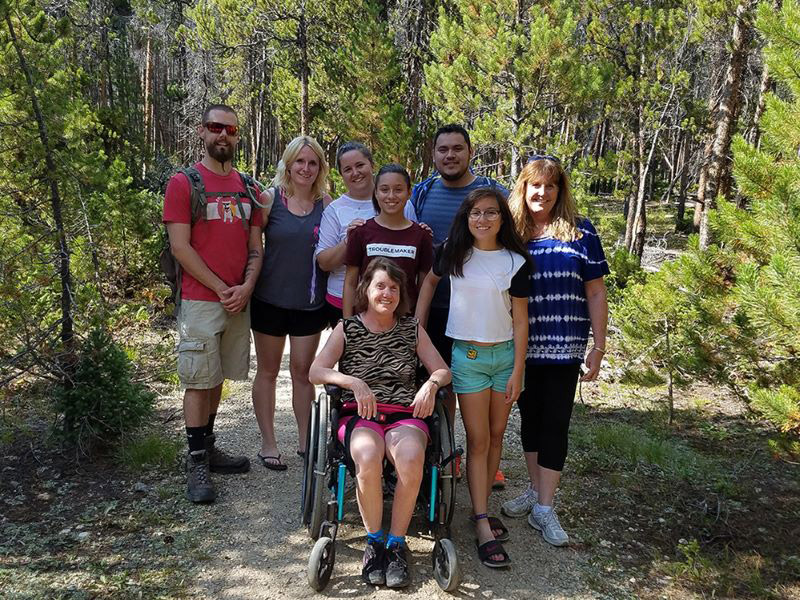When Cheryl got injured, Lori wasn’t sure what to do. Her sister, who has cerebral palsy and mild developmental disability, had been living on her own with just an aide coming in a few times a week. The situation had been working well, but then Cheryl fell and ended up with broken ribs. And suddenly her needs were too great. She needed more support.
Lori knew she couldn’t take Cheryl in herself. As the primary earner of her household, she simply wouldn’t be able to dedicate herself to Cheryl as much as she needed. So Lori started looking at group homes for her sister. But then she came across an option she hadn’t even known about before: host homes.
Host homes (also known as life sharing or shared living) are a unique living arrangement where an individual or family in the community opens their home to a person with disabilities. And they come with a whole host of benefits for people with disabilities and their families.
Greater independence
“I’ve always said a person’s biggest disability can be their family,” says Lori. And she’s got a point. It’s natural for loving, caring family members to want to do as much as they can for their disabled loved one. But sometimes, that well-meaning help can prevent people with disabilities from learning new skills and trying things that could lead to greater independence. Moving into a new home with new people gives a disabled person a fresh start with new chances to learn, grow, and experience the world.
Lori has seen the difference in Cheryl since she moved into her host home too. “She’s blossomed in a different way,” she says.
Peace of mind
At first, Lori felt guilty about having Cheryl live in a host home; up until Cheryl’s fall, the sisters had been living within 10 minutes of each other, but the host home was farther away than what they were used to. But Lori soon came to realize her concerns were unfounded. “She’s in a place where she’s got constant care and people to watch over her,” she says. “And even if I can’t get there as quickly as I used to be able to, it’s okay—because there’s someone else there I trust.”
A true family
Cheryl’s host home family gets paid for looking after her, but to Lori, it’s clear they’re not just in it for the money. “They include Cheryl in everything they do,” she says. That includes things like church and vacations (even though this year the vacations were smaller, COVID-friendly affairs).
And even if all they’re doing is hanging out watching TV, Lori is glad Cheryl’s not alone. “I think she was lonely in her own apartment and didn’t even realize it,” Lori says. “I think she’s happier now.”
Cheryl feels the love too. A few months after moving in, Lori asked Cheryl how it was going—was Cheryl still feeling okay even though Lori wasn’t as close as she used to be?
The answer from Cheryl was a resounding YES. “This is my second family,” she told Lori.
“This is so much above and beyond what I would have expected someone to do,” says Lori. “They took Cheryl into their hearts and into their home and they include her.”
Thinking about a host home arrangement for your loved one?
Lori has some advice.
- Do your research, both with the agency you partner with and the host home family. Lori met people from multiple agencies before choosing AbleLight, and she interviewed several families before finding the right fit for Cheryl.
- It’s normal to feel a little guilty, but remember this is the right thing for your loved one. “They get more personal care, and they get friendship,” she says.
- Talk to someone who’s been through it before. “I didn’t know anyone who had a family member in a host home program,” says Lori. “But talking to someone who can explain what it is and why they chose it could really put your mind at ease.”
Become a Host Home provider
We currently offer Host Home programs in Colorado, California, Kansas, and Minnesota, with an eye toward expanding into more states in the future. If you’ve got room in your home—and in your heart—for a person with disabilities, we want to hear from you!

